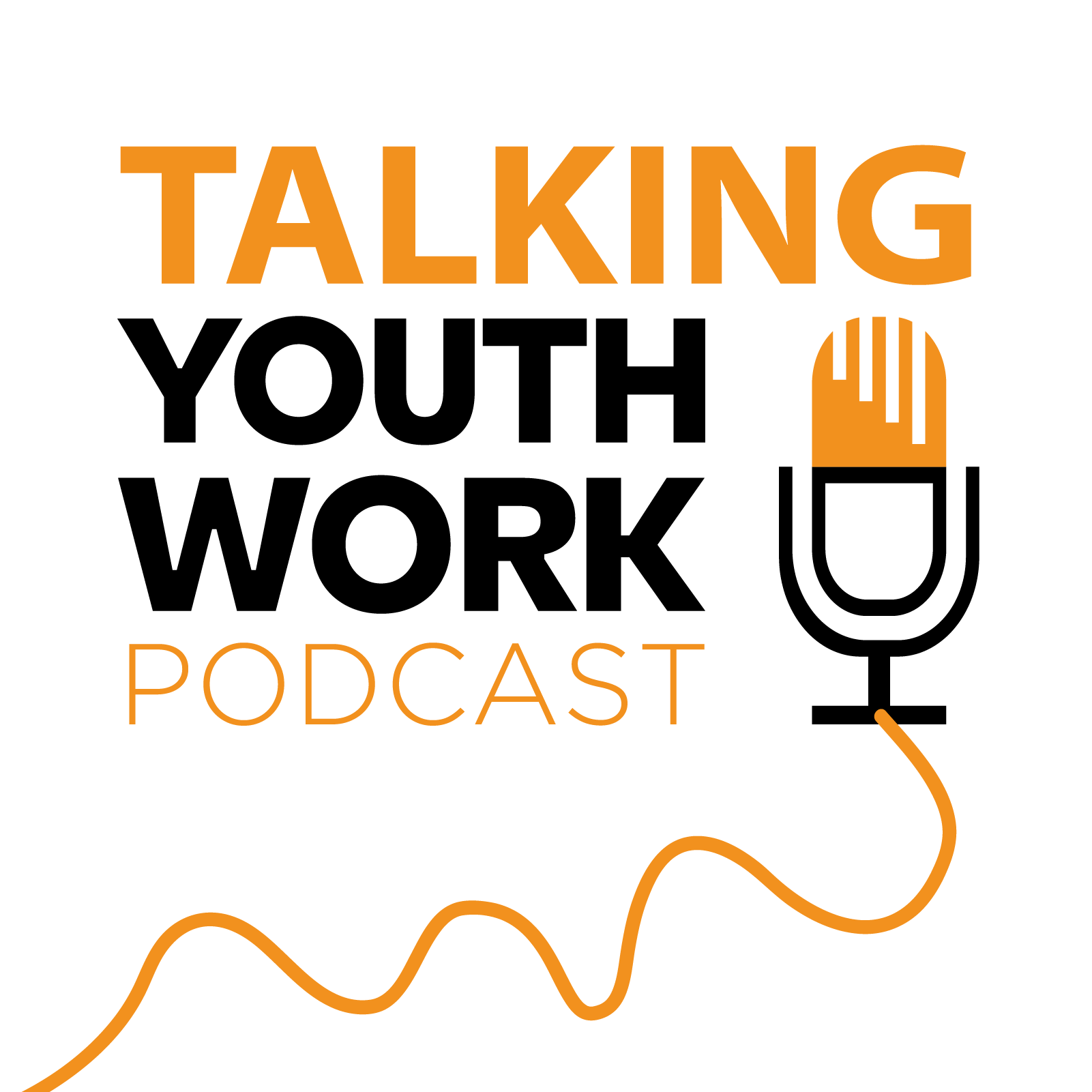
1.4K
Downloads
46
Episodes
“Talking Youth Work” is a series of podcast interviews to Youth Work experts and practitioners that have a say when it comes to Innovation in Youth Work. Hosted by Anita Silva and Rui Branco.
“Talking Youth Work” is a series of podcast interviews to Youth Work experts and practitioners that have a say when it comes to Innovation in Youth Work. Hosted by Anita Silva and Rui Branco.
Episodes
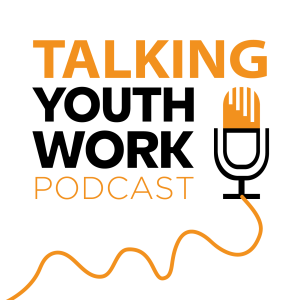
Wednesday Jan 29, 2025
Esports in Youth Work with Jan Lai, season 3, episode 5
Wednesday Jan 29, 2025
Wednesday Jan 29, 2025
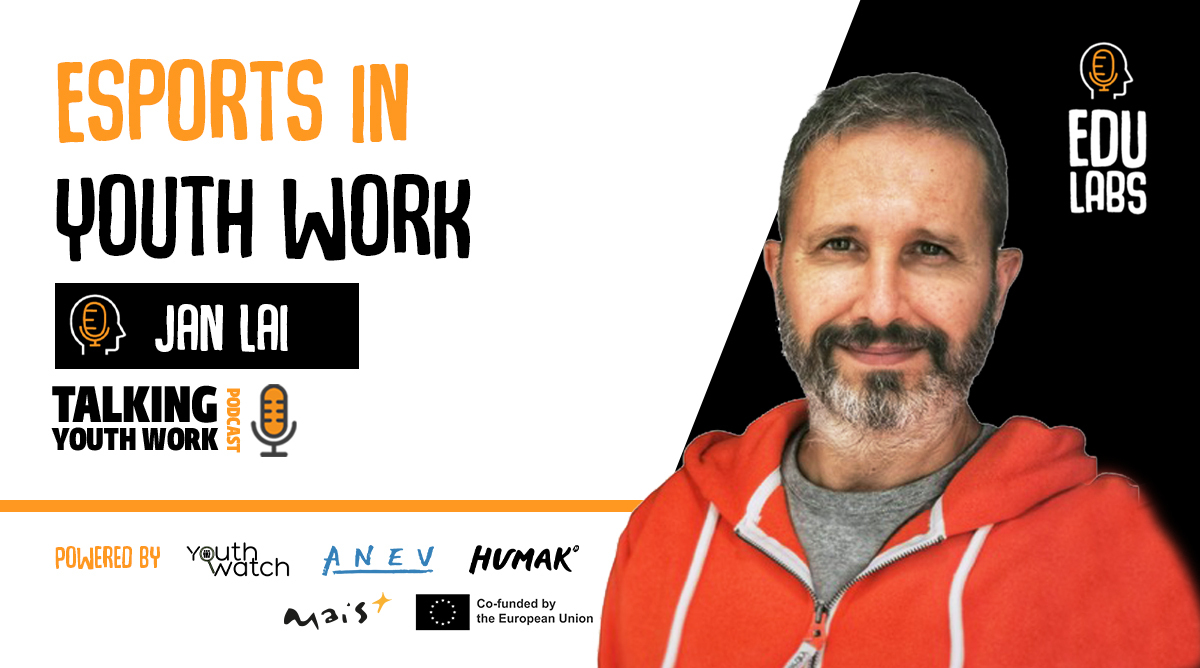
Dear listeners,
In this edition, we had the pleasure of conversing with Jan Lai, an expert in international youth mobility, non-formal education, youth work, digital literacy, and online learning. Jan is a passionate and restless soul who enjoys a good challenge.
During our chat, Jan shared how he initiated an esports* team with a group of young people in his hometown, Cagliari, with a modest budget.
*Esports, short for electronic sports, is a form of competition using video games.[1] Esports often takes the form of organized, multiplayer video game competitions, particularly between professional players, individually or as teams. (Source wikipedia)
In addition to playing games, the youngsters were tasked with assembling the computers they would use to play. This undertaking was a unique learning experience for all involved, as they had to learn how to work together as a team to build computers from scratch. The project is recent but already a success, and the young people learned valuable skills such as teamwork, patience, and technical know-how.
Video games can be an excellent tool to engage young people in learning experiences that may not otherwise pique their interest when presented in a formal educational setting. Furthermore, gaming can serve as a platform for socializing and teamwork, where young people can work together towards a common goal.
By encouraging young people to step out of their comfort zones, learn new skills, and commit to something they are passionate about, they can become more motivated and interested in developing their abilities.
Other groups across Europe are also creating esports teams and organizing tournaments to compete, socialize and share experiences beyond virtual settings.
We hope you enjoyed this episode as much as we did.
Here’s the link to a publication about Participation with Videogames.
https://participationpool.eu/resource/exploring-participation-with-videogames/
Any ideas, comments and suggestions, email us at talkingyouthworkpodcast@gmail.com.
First published on Friday Apr 28, 2023

Wednesday Jan 29, 2025
Learning environments with Snežana Bačlija, season 3, episode 4
Wednesday Jan 29, 2025
Wednesday Jan 29, 2025
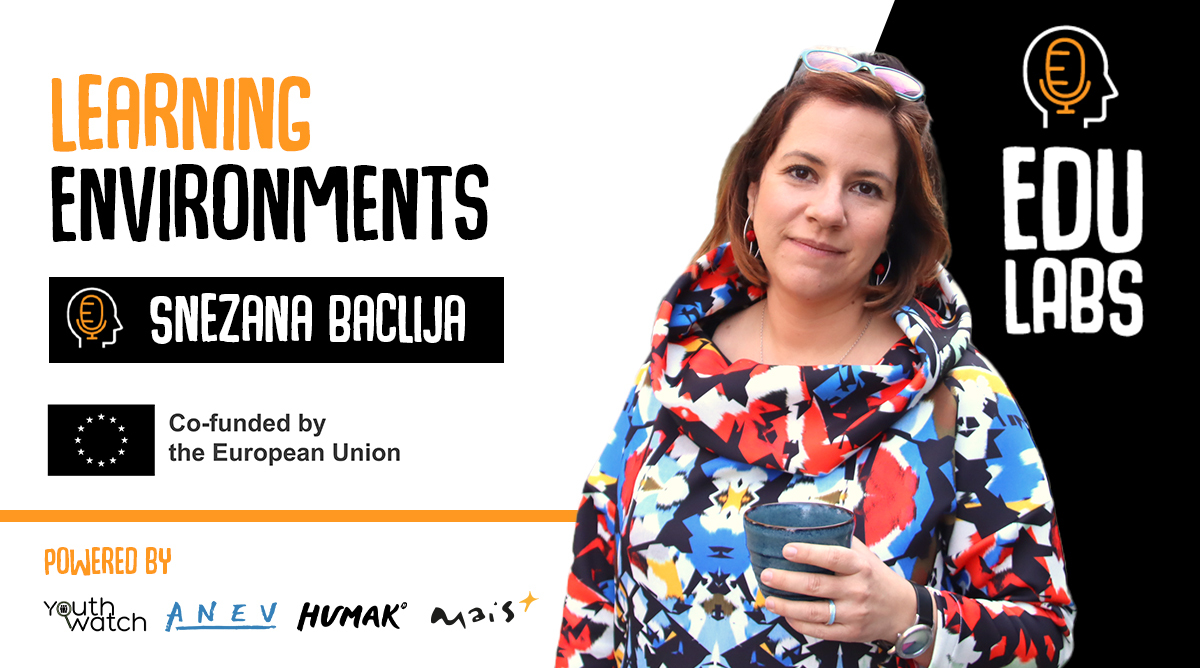
Hello dear listeners,
In this episode, we talked to Snežana Bačlija Knoch, an educational consultant in the European youth field and a facilitator of learning for nearly two decades. She loves to create encouraging and inviting learning environments, facilitate action-oriented value-based learning, and experiment with (and sometimes create) different educational tools and approaches.
We started by trying to understand what creates enriching learning environments. Is it the people? Is it the physical space? It’s a combination, for sure, but it's interesting to explore how the environments influence the group and vice-versa. It’s not the same thing to discuss diversity with a non-diverse group of people in a plain white room or having a diverse group that goes into town to explore and talk to people on the streets.
As mentioned in our episode about learning experience design, it’s important to “start with the learners in mind. Who are they? What do they know already? And how can we help them learn something new?” Now we might add: What environment will this need? What kind of space? What group of people?
Of course, in real life, there are spatial limitations, we don’t always have the training rooms that we would like to create the environment that would best suit the learning experience, but we can always be creative in how we use it, or explore the surroundings, find a park, a library, a coffee shop nearby, that will help facilitate the discussions and the learning that we are aiming towards.
Have you ever thought about the environments that suit your learning the most?
What kind of spaces and people help you learn the best?
Know yourself and bring the others with you. A very insightful episode, have a listen and let’s keep Talking Youth Work.
Any ideas, comments and suggestions, email us at talkingyouthworkpodcast@gmail.com.
First published on Tuesday Mar 14, 2023

Wednesday Jan 29, 2025
Wednesday Jan 29, 2025
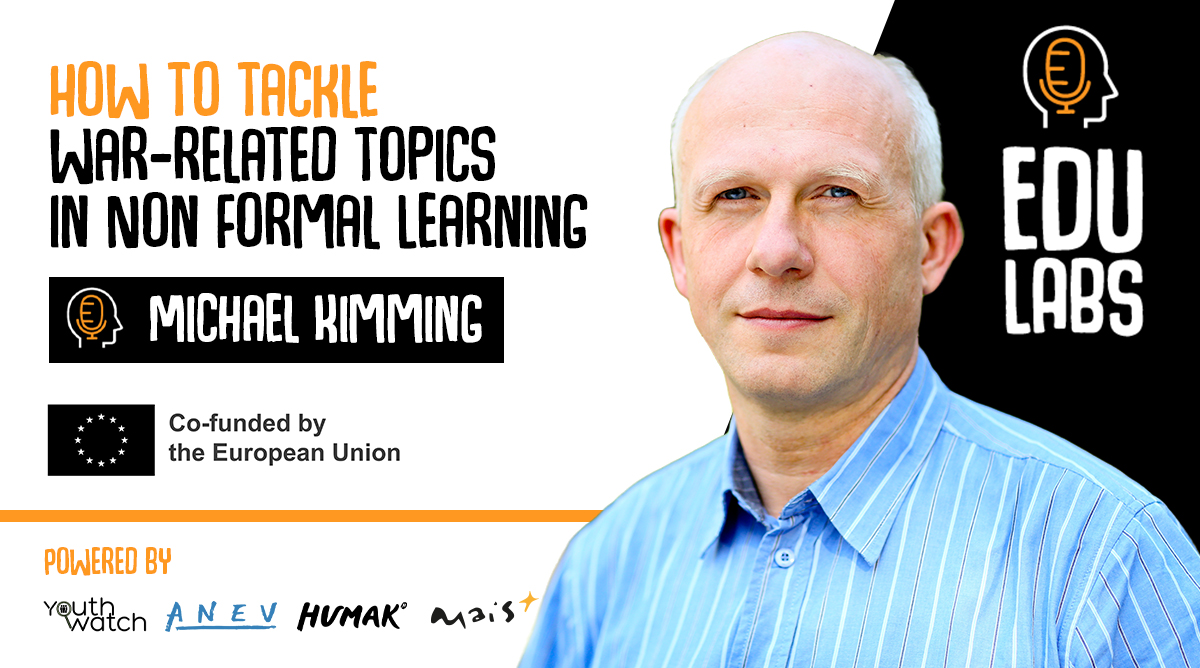
Hello dear listeners,
This time our conversation was with Michael Kimming, an intercultural trainer, coach, online instructor and facilitator. Michael and other colleagues published an eBook called “How to Talk About War – Facilitating Learning in the Face of Crisis”, which became the topic of our conversation.
Michael was facilitating a workshop when the war in Ukraine began. Some of the participants were from the involved countries, so there was a real need to address the situation. Michael explained how he felt and how there were no tools to deal with this topic initially.
His advice for you if you ever face a similar situation is to simply stay there and feel what you feel in this moment of uncertainty. Don’t worry about not having any tools. The tools come a little later. First, look inside yourself and start from there. And then help participants express their own emotions in a clear and helpful way.
Although some people feel the urge to act, Michael suggests that action can come afterwards, first its important to address the emotions and the needs of participants, which will help create the safe space needed for effective action.
This was a fantastic, deep and rich conversation that left us wanting a round two with Michael to explore more of this fascinating topic.
Links:
Ebook: How to talk about war. Facilitating learning in the face of crisis by Dagna Gmitrowicz, Marta Brzezińska-Hubert and Michael Kimming. Self-published, Berlin, Poznań, Warsaw, March 2022
SALTO Toolbox: https://www.salto-youth.net/tools/toolbox/tool/how-to-talk-about-war-facilitating-learning-in-the-face-of-crisis.3219/
Blog: http://michaelkimmig.eu/how-to-talk-about-war-facilitating-learning-in-the-face-of-crisis/
Online Course: Talking about war and peace. Facilitating learning in times of crisis. Course authors: Marta Brzezińska-Hubert and Michael Kimmig : https://hop.salto-youth.net/courses/talkingaboutwar
Any ideas, comments and suggestions, email us at talkingyouthworkpodcast@gmail.com.
First published on Tuesday Feb 21, 2023

Wednesday Jan 29, 2025
Self Directed Learning with Paul Kloosterman, season 3, episode 2
Wednesday Jan 29, 2025
Wednesday Jan 29, 2025
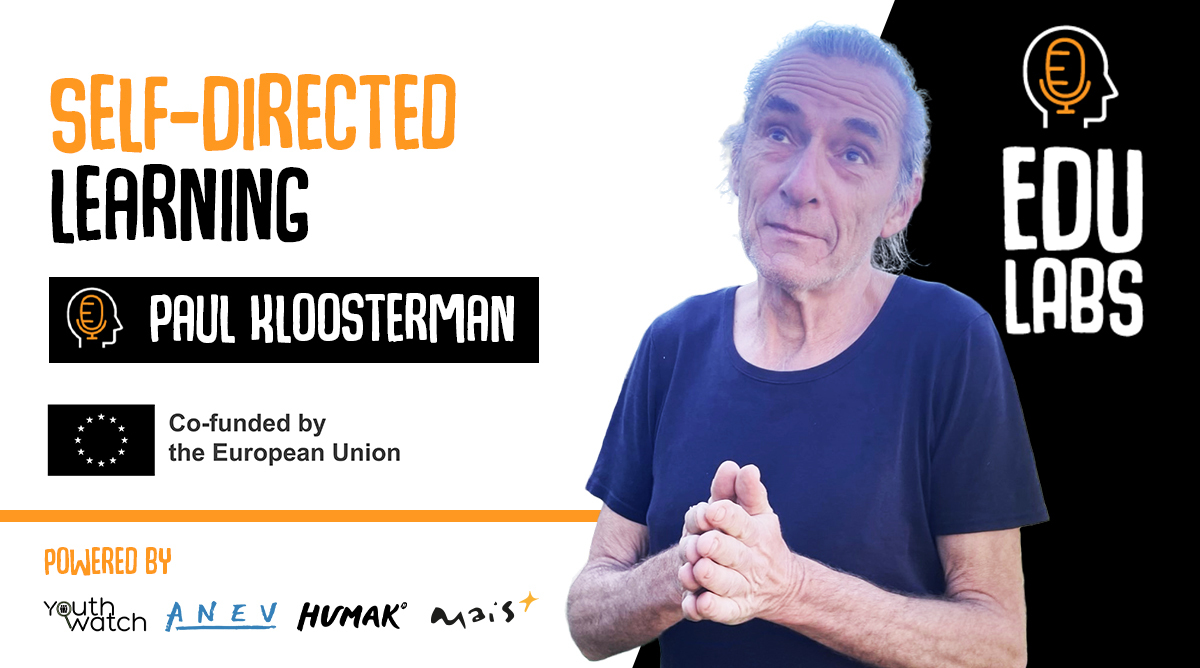
Hello dear listeners,
In this episode, we talked with Paul Kloosterman, a youth worker and author of several publications for youth workers and facilitators. We heard Paul’s story of how he got involved in youth work, but the main topic of our talk was Self-Directed Learning.
As the name implies, self-directed learning it’s a process where individuals take responsibility for planning, continuing and evaluating their learning experiences. The role of the learner here is to be curious and find the support needed from fellow learners, facilitators of the learning experience or other resources.
One can say all learning is self-directed because learning is an individual and personal process. We cannot force learning, it’s something that happens within us as a response to external or internal stimuli. The desire to advance in our careers, the need to change something in us or the world around us, the curiosity of exploring connection and wonder, or whatever compels us to start a new learning journey.
Learning doesn’t start or stop at the place where teaching or facilitating is happening. It’s an ongoing process that feeds from the conversations we have, the books we read, the games we play, and the places we go to, so the only constant in the learning process is the person who is learning. The more it can be self-directed, the more impact it will have in one’s life and the life of the people we interact with.
The role of the teacher, facilitator, mentor or youth worker is to support and stimulate the learning experiences that every learner has or needs to have. This support can come in many forms, but the most important support is to show interest in what's important for the learner, bring new perspectives, ask questions and suggest ways forward, always in service of the learning process of each individual.
In a group setting, it can be more of a challenge, but learning with others is also a form of self-directed learning. Paul puts it in a very clear way when he says:
“You start a program, and people go their own way. They go their own way, but they go together.”
Self and others are all parts of the learning experience.
Paul shares a very nice approach. Curious? Have a listen.
Any ideas, comments and suggestions, email us at talkingyouthworkpodcast@gmail.com.
First published on Sunday Jan 29, 2023

Wednesday Jan 29, 2025
Learning Experience Design with Niels Floor, season 3, episode 1
Wednesday Jan 29, 2025
Wednesday Jan 29, 2025
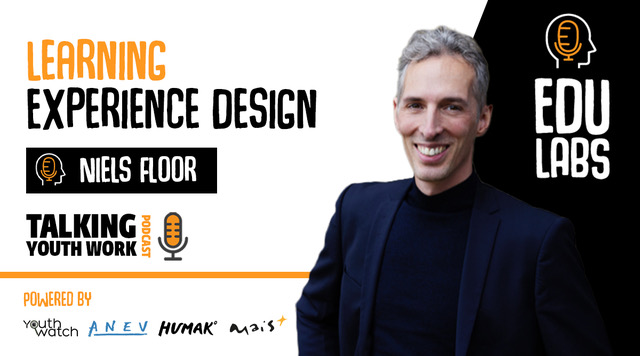
Hello dear listeners,
After more than a year, Talking Youth Work is back.
We did miss you. A lot!
We hope you are doing well and are curious to learn about Youth Work with our guests.
This time we spoke with Niels Floor, a pioneer of the concept of Learning Experience Design.
Niels is a designer himself, and he brought the curiosity and problem-solving abilities of designers to the learning space.
How do we create a better learning experience? By putting together some exercises and group dynamics?
According to Niels, Learning Experience Design starts with the learners in mind. Who are they? What do they know already? And how can we help them learn something new?
Learning requires changing how we view the world. Through learning processes, we add, subtract and rearrange information to the map we have of our experience of the world.
The learning design process should be fueled by curiosity and empathy. It aims to create the conditions for learning to take place. It’s a holistic approach, where smells, sounds, and textures can all play a role in facilitating the learning experience. Niels shared the “learning experience canvas” as a tool for designing learning experiences. You can download it here.
It was a great conversation that left us wanting to have a round two with Niels.
Have a listen and tell us what you think.
This episode was developed in the context of EDULABS, a KA2 project funded by the ERASMUS+ programme and brought to by Team MAIS, Humak, ANEV and Youth Watch.
Any ideas, comments and suggestions, email us at talkingyouthworkpodcast@gmail.com.
First published on Tuesday Dec 13, 2022

Wednesday Jan 29, 2025
What's new in Erasmus+ Youth Exchanges with Paavo Pyykkönen, season 2, episode 16
Wednesday Jan 29, 2025
Wednesday Jan 29, 2025
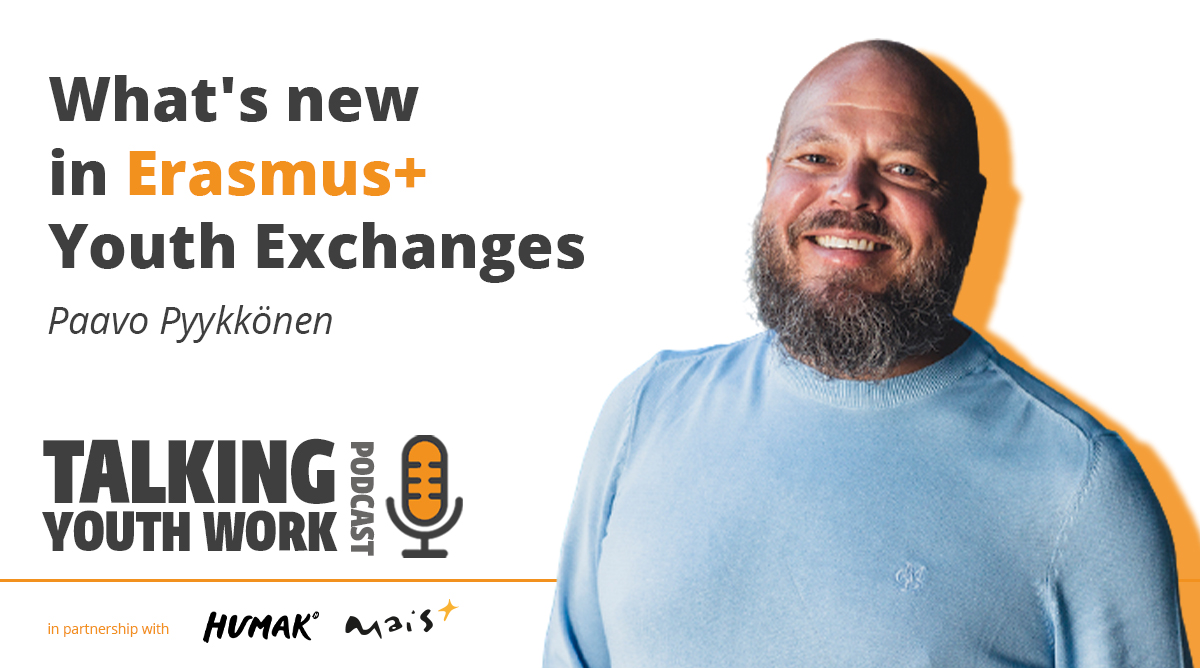
Dear listeners,
We spoke with Paavo Pyykönen who is a senior program advisor for the Finnish National Agency for the Erasmus+ Youth Program, an european funding line that supports youth work related projects.
Paavo talked about the importance of international youth exchanges, where youngsters can meet peers from other cultures, pursue their interests and grow together as individuals and as citizens. The job of the adults involved is to empower the young people and not treat them like little kids that can't solve problems by themselves. Youth workers should trust that young people can figure things out, and that they know things and have skills that the adults might miss.
We all hope the new funding line will create better opportunities for organizations in the field of youth work to create long lasting and meaningful learning experiences. Besides of the novelties in the new programme that we talked about, Paavo had a good advice for all that want to design projects: people should design projects that answer a specific need of their own organisation or communities, not generic projects that try to tackle too much.
The new Erasmus+ Youth programme has new thematic priorities, such as digitalization and green issues, topics we have covered previously in this podcast when we talked with Laimonas Ragauskas or with Antonio Jovanovski.
It was very inspiring for us to talk with Paavo, he is a passionate person that really believes in the support the Erasmus+ programme gives of the next generations, so they can thrive and create better future for themselves, and for all of us, if we think about it.
We sure enjoyed this conversation; we hope you do too. Let’s Talk Youth Work!
Youth Goals: https://youth-goals.eu
Erasmus+ Guide: https://ec.europa.eu/programmes/erasmus-plus/programme-guide/introduction_en
EU Youth Strategy: https://europa.eu/youth/strategy_en
Any ideas, comments and suggestions, email us at talkingyouthworkpodcast@gmail.com.
First published on Tuesday May 04, 2021

Tuesday Jan 28, 2025
The Future of Work with Gonçalo Hall, season 2, episode 15
Tuesday Jan 28, 2025
Tuesday Jan 28, 2025
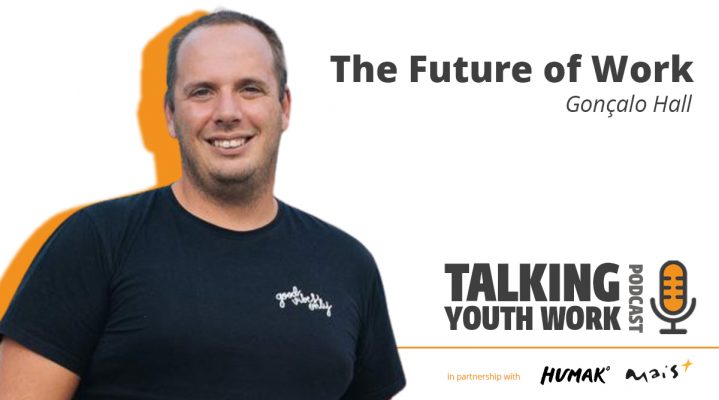
Any ideas, comments and suggestions, email us at talkingyouthworkpodcast@gmail.com.
First published on Monday Mar 08, 2021

Tuesday Jan 28, 2025
Tuesday Jan 28, 2025
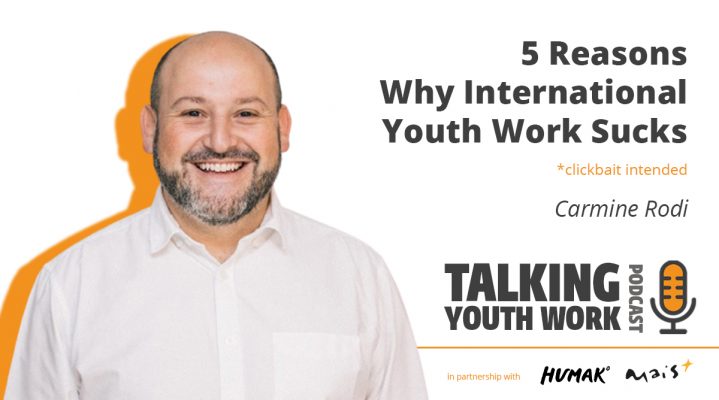
Hello dear listeners,
First of all, we wish you a super 2021, as this is our first episode this year. To lighten up things we talked to Carmine Rodi, a trainer and standup comedian.
Sometimes humor is the best way to bring awareness to certain topics, and youth work has some particularities that Carmine explored in a very humorous way. In the work kit that youth workers and trainers use, comedy and humor can be very useful tools to engage and connect with others, to create bridges, to allow further engagement and deepen hard subjects.
The practice of using humor can develop the competences of reading a room, being attuned to the effects of the humor being used and being conscious of the power that words can have in others. This can enhance the ability of public speaking, of being more at ease and connected to the energy in the group and to step up clear boundaries.
We talked about the very thin line between making jokes and offending someone, and as Carmine explained very well context is key in this, all that is heard by others travels through their experiences, their values, their lives, and something that might be funny to some can be offensive to others. But humor is a natural human trait that can be a way to experiment and to better cope with our own mistakes.
It’s a sign of confidence and openness when we can laugh at ourselves, so we hope you can all enjoy the funny aspects of international youth work, that in reality (spoiler alert), don’t really suck.
Links to Carmine's work
Professional site: https://carminerodi.net/
Blog on storytelling, the impact on popular culture and... stuff: https://carminerodi.blog/
Facebook page for storytelling workshops and related activities: https://www.facebook.com/nothing.of.the.cat/
Carmine comedian page: https://www.facebook.com/carminestandup/
workshops on Storytelling in Education (starting NEXT WEEK!): https://www.salto-youth.net/tools/european-training-calendar/training/online-workshops-the-art-and-science-of-storytelling-feb-mar-2021.9081/
online workshops on comedy and humor (starting in April 2021): https://www.facebook.com/ThisWorkshopisaJoke/
Books mentioned in the episode:
"The humor code" by Peter McGraw and Joel Warner
"The new comedy bibble" by Judy Carter
Any ideas, comments and suggestions, email us at talkingyouthworkpodcast@gmail.com.
First published on Monday Feb 15, 2021

Talking Youth Work
Like a “shot” of inspiration, all of our guests have a unique point of view about how can Youth Workers shake up, upgrade and innovate on their daily work. If you want to learn more about the approaches and methods presented in the podcast, you can look up step-by-step tutorials on our Tools section, read the Future Labs Handbook or even learn about training Youth Workers on these tools by using our open source Training Program. Enjoy!
